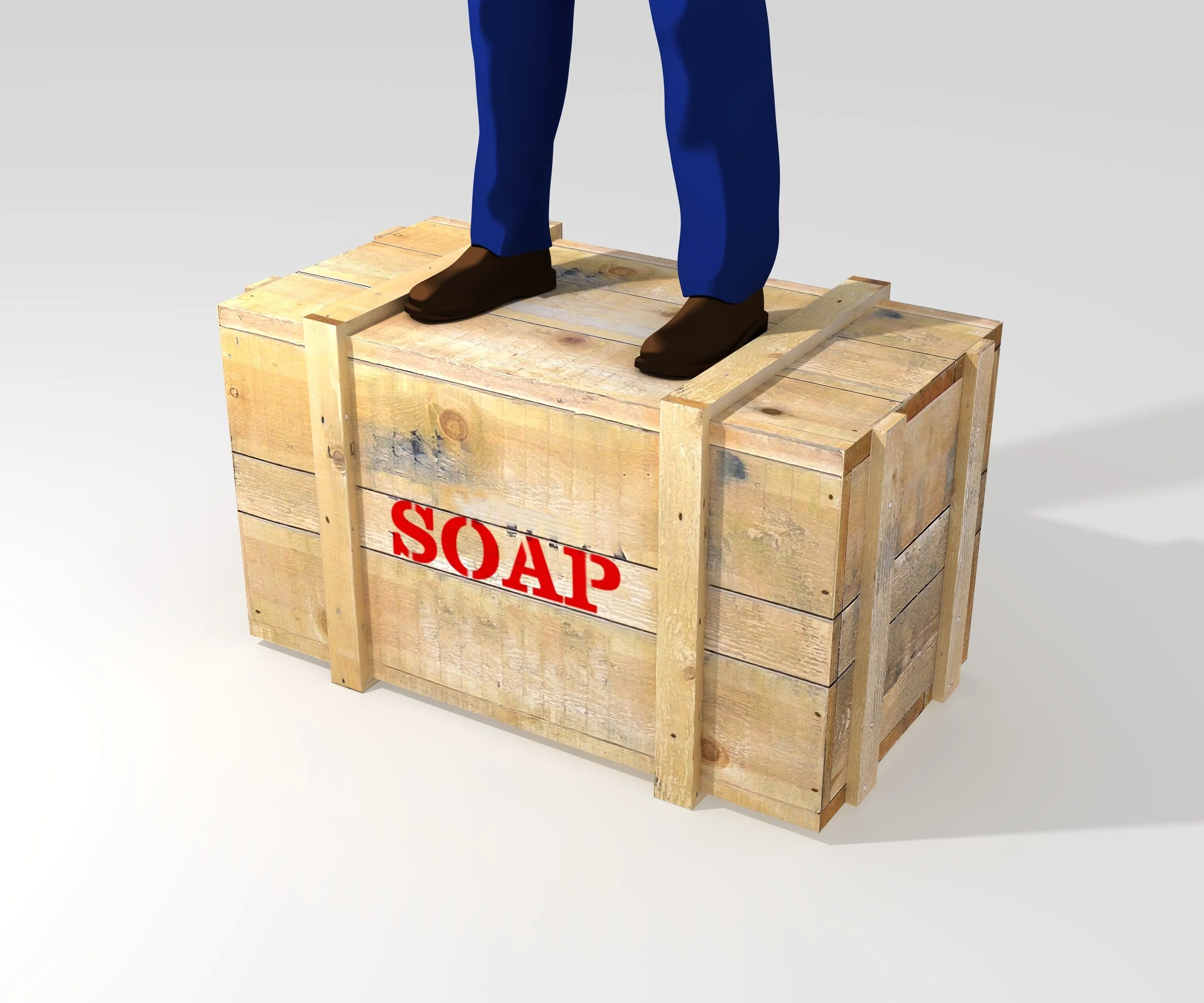
Meta’s new scam prevention claims: Sue is not impressed
This morning’s Social Media Today newsletter featured a really interesting – and eyeroll-inducing – headline: “Meta Touts Detection Efforts Ahead of Anti-Scam Summit.”
Essentially, ahead of this big summit, Meta has released some figures to “prove” that it is doing something to combat the rampant scam ads all over its platforms. This, of course, would have nothing to do with last month’s positively astounding Reuters reporting that Meta knew about the rampant scams and in fact was set to make 10% of its 2024 revenue from scam ads – roughly 15 billion scam ads a day.

Discord data breach brings governance principles to the forefront in real time
This week I gave my presentation on the 12 major risks of poor social media governance at 3M’s Media Technology & Governance Summit. And as luck would have it, Discord provided us a real-time example that highlighted what can happen if some of those risks are ignored. Somehow this one data breach touches upon FIVE of my 12 governance principles, all in one incident. That’s sad, but it also illustrates how good governance relies on companies to be vigilant on multiple fronts, and it highlights the interdependencies that exist between the different elements of governance.

It’s Cybersecurity Awareness Month! Know the Core Four So the Criminals Don’t Know You
Cybersecurity Awareness Month is an annual initiative from the good folks at the National Cybersecurity Alliance. The goal is simple: “to remind everyone that there are simple, effective ways to keep yourself safe online, protect your personal data, and ultimately help secure our world.” Man, that last part is truly a high goal. But after years of focusing on the cybersecurity of social media, one thing is very clear to me: your personal online safety is intricately woven throughout all things you do, both online and offline. And, our individual efforts to secure our own personal security may seem small, but they actually add up to quite a lot.

Why “going live” is not always a good idea
I must admit, last week I had a pretty good chuckle over the video of Mark Zuckerberg absolutely failing during a live demo of Meta’s new $800 AI-enabled glasses. For some reason, executives seem to think that doing a totally live demo is a great idea. They are super keen to host a livestream event with millions of people tuning in to watch them. Maybe it’s an ego thing. But it seems like many executives don’t consider Murphy’s Law.

Protecting older citizens from cybercrime: Introducing Then & Now
According to the FBI, Americans over the age of 60 reported almost $5 billion in total fraud in 2024 – and those were just the reported cases. And to quote National Cybersecurity Alliance Executive Director Lisa Plaggemier at last week’s NCA Convene conference, “They know they’re being targeted, and they’re mad about it.” The NCA has done something about it and is launching a new campaign and printed workbook and microsite for older folks titled Then & Now. In my opinion, this is a smashing home run of an effort to educate in an entertaining and easily accessible way.
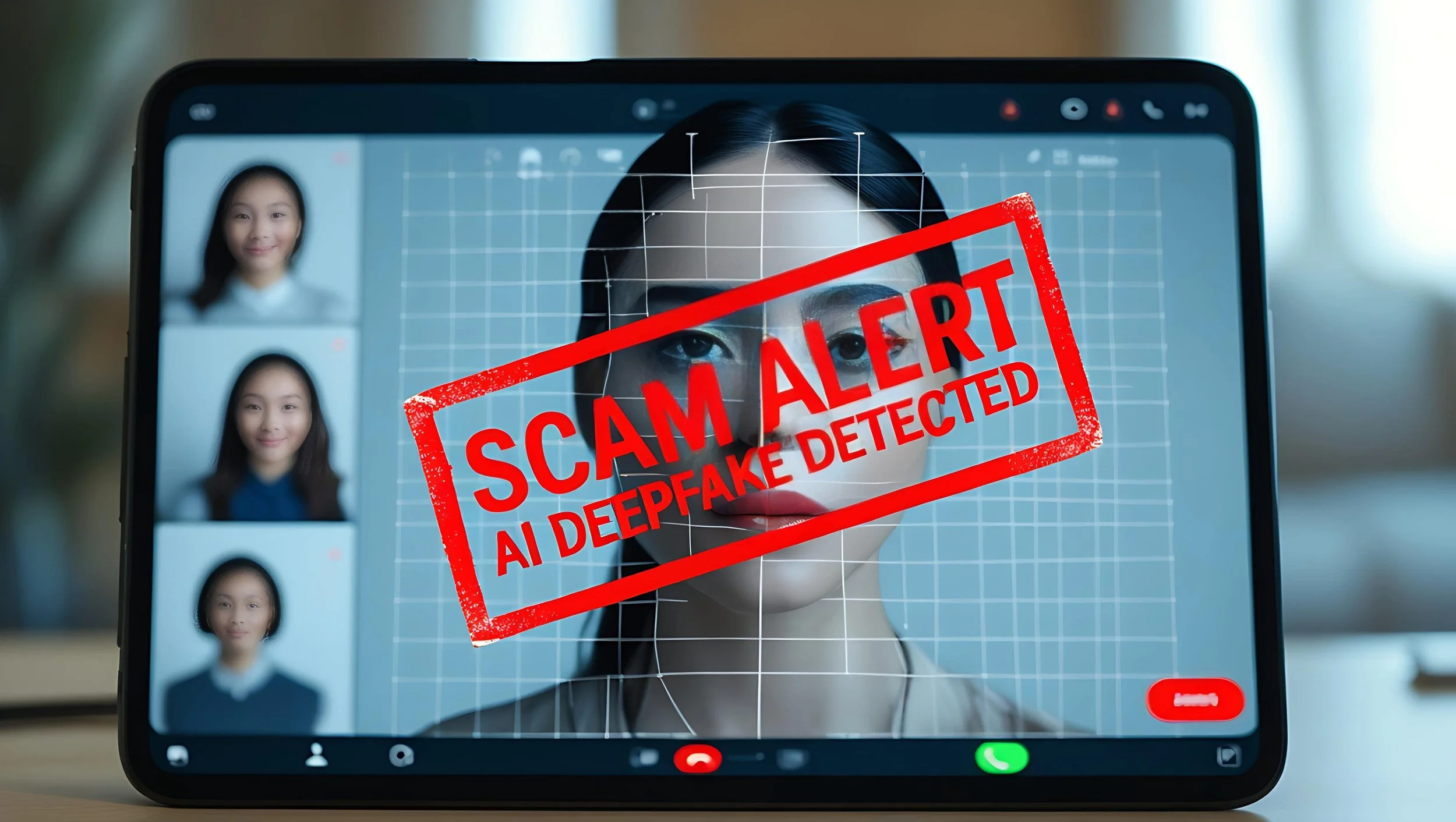
Safe words: They’re not just for the bedroom anymore
In a campaign launched earlier this year, the National Cybersecurity Alliance launched an effort to get individuals to create safe words for their families, close friends, coworkers or caregivers for elderly family members. Essentially, you establish a safe word with this person or group of people and then should you receive an urgent call from that individual requesting money, assistance or information, you simply ask the caller for the safe word to verify that it’s truly your person and not a computer doing a great impression of them.
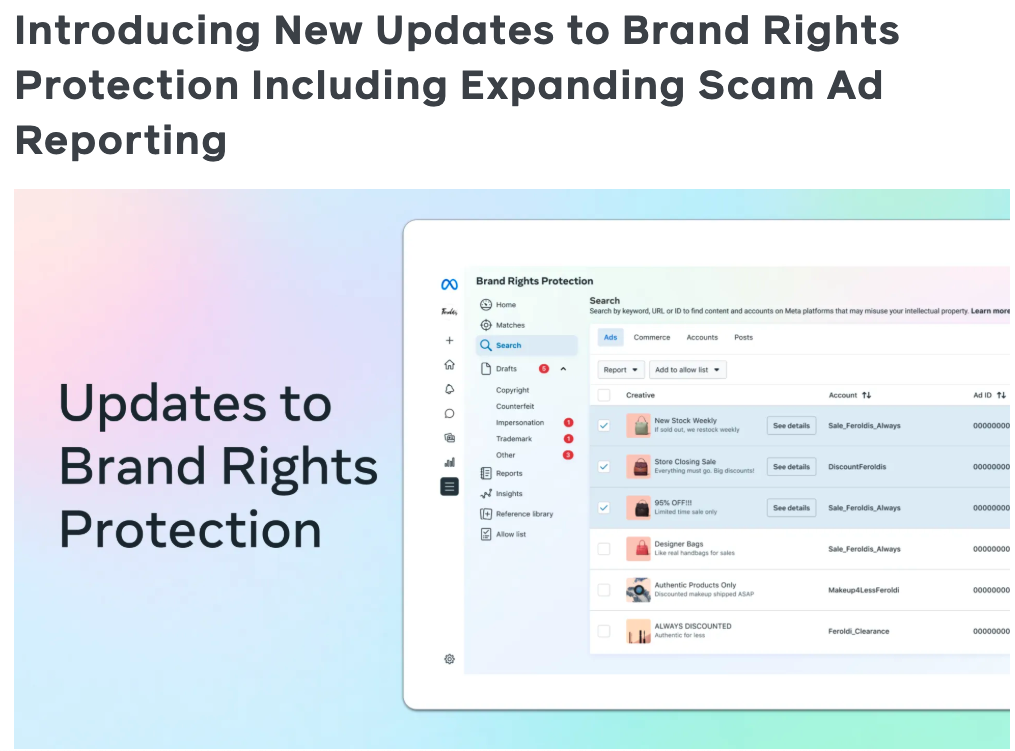
Meta quietly launched a “Brand Rights Protection” hub – here’s what you need to know
Meta updates its Brand Rights Protection hub, adding more features. Here’s what you need to know about Brand Rights Protection, and my hottake on the potential of this tool and the pitfalls I see.

Third parties: the social media security weak point no one considers
Let’s say you are very diligent about the security of your home. You have a fancy video doorbell. You lock the front door, back door, windows and gate every time you leave the house. You probably think you’ve done enough to secure your residence.
But that’s not true. An enterprising thief could discover your spare key hidden in one of those fake rocks we all think are so clever. Or perhaps you still keep a spare key under the doormat, making you easy prey. Sadly, this analogy really speaks to what’s happening in social media security and governance.

Hottake: 4 Important Lessons From the Coldplay Accidental “Outing” (aka How NOT To Go Viral)
This week provided us with a classic example of how something goes viral because the people make it so – not the company. Enter: The public outing of Astronomer CEO Andy Byron and his affair with his head HR person. Trust me, in this case, the company really, dearly wishes this had stayed nice and quiet. Other than just rubbernecking like it’s a 20-car pileup, let us pause to evaluate what companies and leaders can and should learn from this incident.
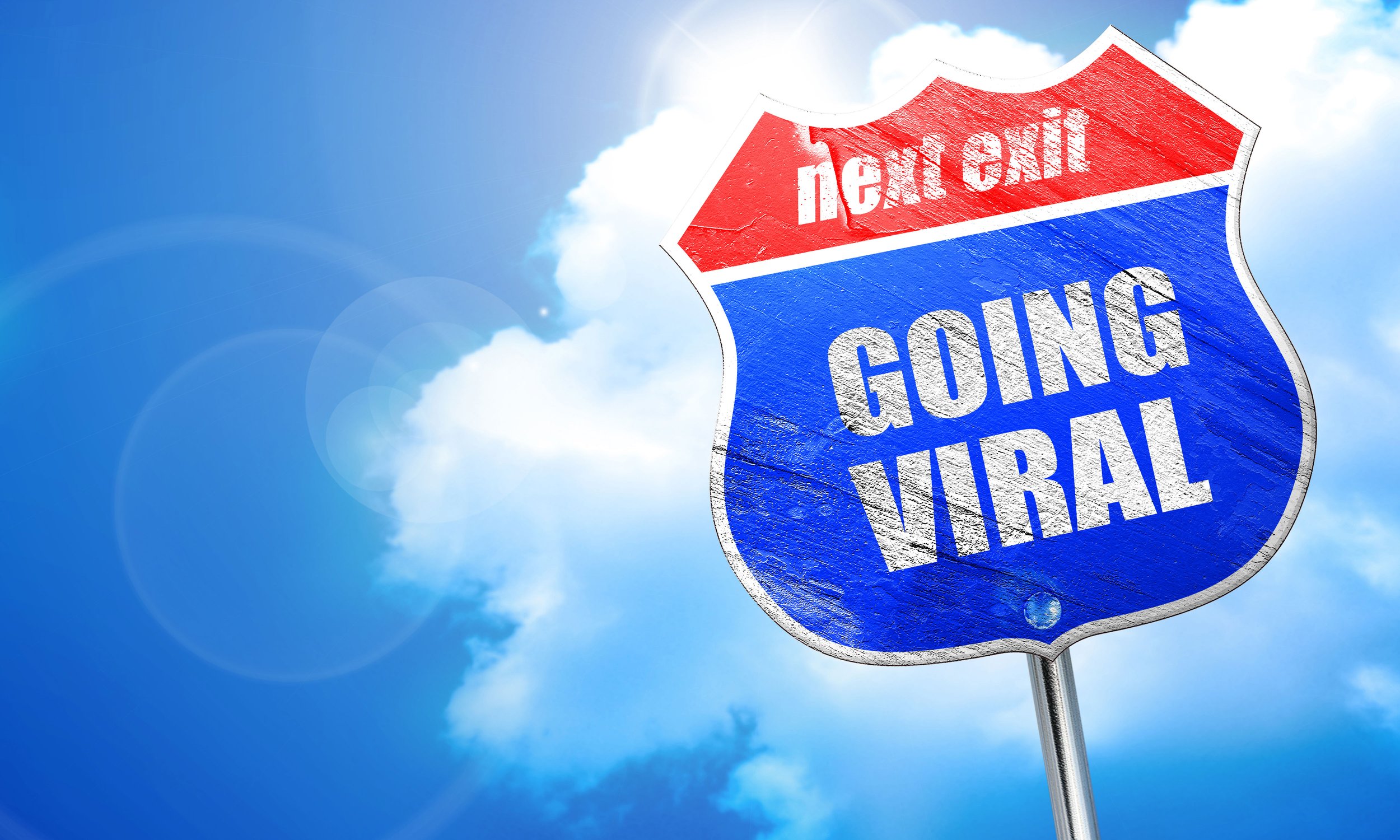
Why I hate the word “viral”
“How can we make this go viral?” I cannot tell you how many leaders have asked me this exact question over my nearly 15 years doing social. Let’s set the record straight. “Going viral” has always been a bit of a misnomer, but the notion that you can make something go viral is kind of nuts. Most things that do go viral do so on their own because people drive the spread of the post. It is very rare that a company sets out to “make something go viral” and actually succeeds.

The top 5 password mistakes companies make
When it comes to corporate social media governance, here’s the point: If humans are terrible at managing their personal passwords, that means that those who are managing your company’s social media account passwords are probably doing it equally poorly. If you’ve never asked them about how this is managed, now might be the time. To help, here are my top five mistakes companies make.

Consolidation isn’t a dirty word, at least for corporate social media
Have you ever searched for a company’s social media channel only to find that there are 29 different accounts for the same brand? Unfortunately, that’s common, and it’s a fundamental mistake that even some of the world’s largest brands make.

The Top 5 Social Media Hiring Mistakes
It amazes me that more than 20 years after social media “became a thing,” companies still have no idea how to properly resource or hire for it. After years of interviewing and hiring social media professionals for my own team and for clients, here are my top 5 mistakes companies make.

The giant gap in understanding between leaders and social
I often talk about how there are fundamental “gaps in understanding” when it comes to social media in large corporations. There are many of these gaps, and they all lead to blind spots of different kinds. There’s one significant gap that is rarely discussed: the gap between top leadership and social.

Fake Facebook community standards violation messages & how to spot them
Did you receive a message saying your Facebook page will be disabled because it violates “42 u.s.c. § 1283 (2020) community standards?”
First and foremost: don’t panic. It’s almost assuredly a fake, and it’s a phishing attempt to try to get your Facebook login credentials. The crooks bank on you panicking and not engaging the logical part of your brain. Second, whatever you do, do NOT enter your Facebook login credentials anywhere.

The argument for centralizing social media
One of the most fundamental mistakes companies make is allowing people across the organization to “own” various parts of social media with no centralization and no coordination. The larger the organization, the bigger of an issue this becomes. There IS a right way to manage social media for a company, and it IS by centralizing control of all things social under one team and one set of rules. It’s the only way to achieve the required control for regulatory and legal purposes, and it’s the only way to ensure you are limiting the abundant number of risks related to social as much as possible.

Social Media Content Best Practices: Where Is Bed?
On Friday, this video popped up on my Facebook feed. It is the definition of “sticky content.” Comedienne Lou Wall tells us the craziest story of a Facebook Marketplace interaction — and she demonstrates the best content-making principles for social media while she’s at it.

An argument for sitting out April Fool’s Day on social
It’s almost here – April Fool’s Day is tomorrow, and thus marks the annual day of “you can’t believe what you read anywhere, especially on social media.” But let’s be honest: as a general rule, April Fool’s pranks from a company are almost always an average to terrible idea, and I would advise you to not do it. The bigger your brand, the bigger the risk.
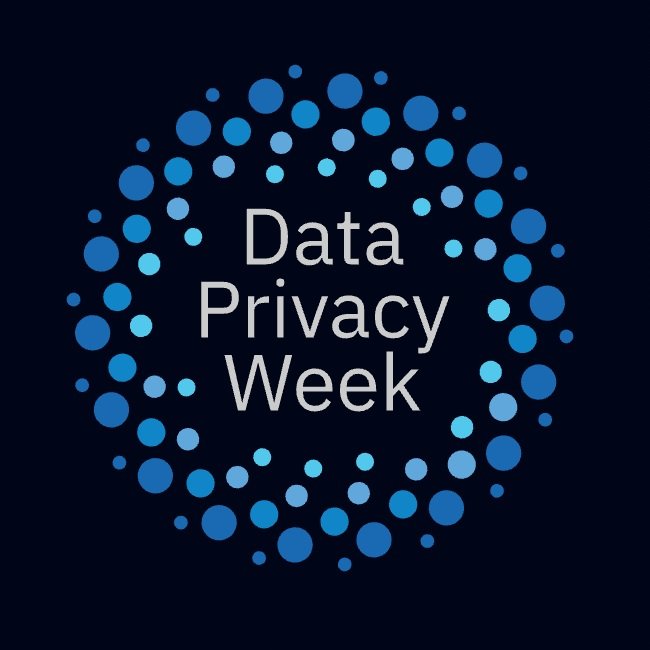
In honor of Data Privacy Week, the top 5 social media governance mistakes
In honor of Data Privacy Week 2025, let’s revisit the top mistakes companies make when it comes to keeping their social media footprint secure and safe.

No one’s talking about social media professionals’ mental health. So let’s talk.
Friends, it’s time to talk about the mental health of social media professionals – the people on the front lines every day representing the world’s biggest companies on social.
Our mental health is in the toilet.
And here’s my response: Freaking DUH.
